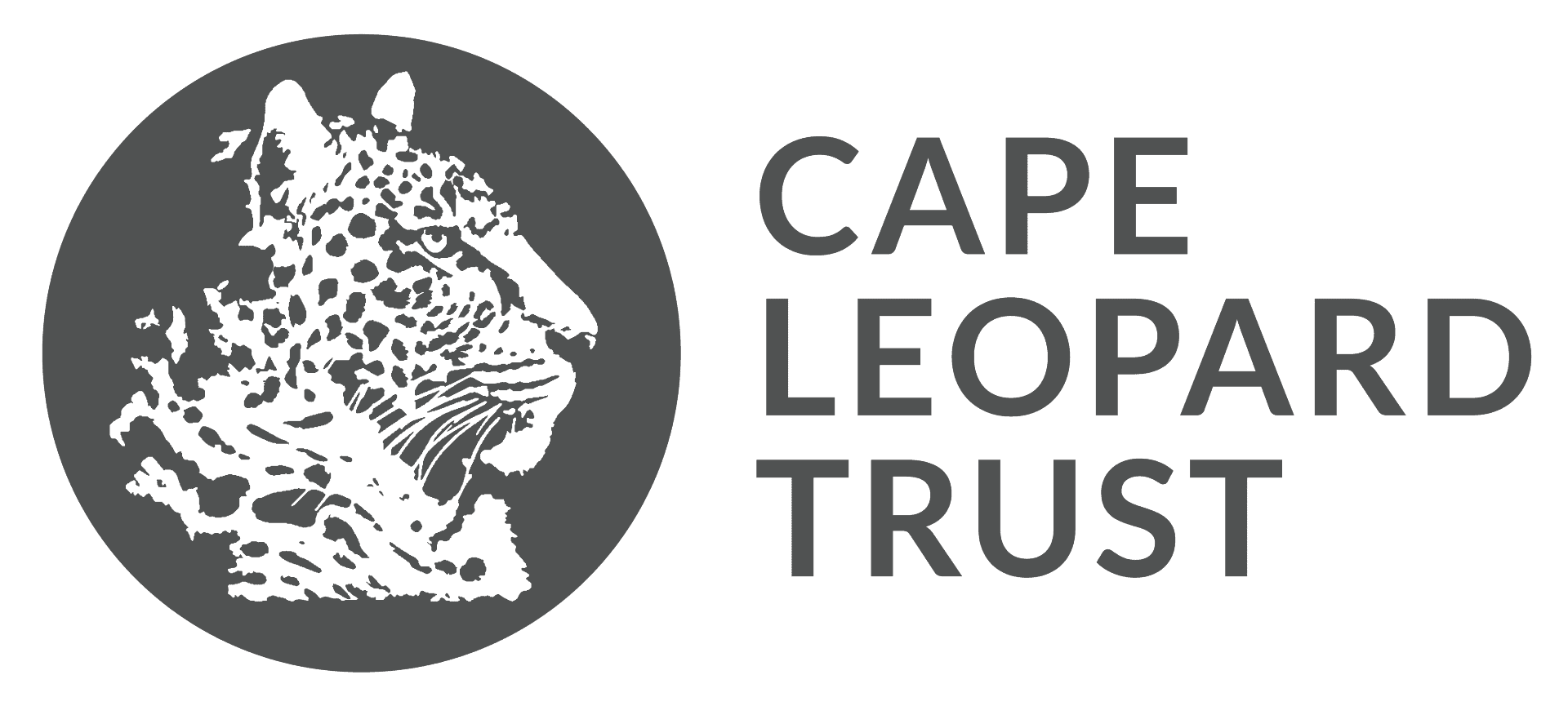The Cape Leopard Trust (CLT; Est. 2004) is a non-governmental, not-for-profit, public benefit organization based in the Western Cape, South Africa. The organization facilitates and promotes the conservation of biological diversity, with a focus on the leopard as a flagship species. The leopard is the last large predator and last member of the Big 5 to still roam free in the Western Cape. The species faces multiple threats, including limited and fragmented habitat, reduction in prey numbers and high levels of conflict with people.
The Cape Leopard Trust’s purpose and vision is to ensure the continued survival of leopard populations, help secure their habitat and prey base, and promote their coexistence with humans. To achieve this, the organization employs a three-pillar approach of research, conservation, and education. These three pillars operate in synergy within the Cape Leopard Trust and in collaboration with communities, private landowners and partner organizations.
Watch CLT’s promotional short film, For the Love of Leopards, for a visual overview of the organization
Read CLT’s 2020 Impact Report for a narrative overview of their recent activities
Find out more at capeleopard.org.za
Empowers Africa has partnered with Cape Leopard Trust in order to provide a cost-effective solution to fundraising in the United States by acting as their fiscal sponsor. Any donations made here will be granted to Cape Leopard Trust.
Empowers Africa uses Stripe to process credit card donations. Stripe has very stringent security rules which may lead to declined credit card transactions. If you are experiencing trouble processing your donation, kindly contact Nadia Derelieva at (917) 328-1611 or via email: nadia@empowersafrica.org
Cape Leopard Trust Campaigns
Scientific research
A thorough understanding of wildlife ecology and behaviour underpins effective management and conservation strategies. The CLT uses a combination of methods including camera trapping, GPS telemetry, dietary analyses, citizen science, occupancy modelling and habitat suitability analyses to develop a detailed understanding of leopard ecology, behaviour, density and distribution, to contribute scientific data and to inform management policies.
Conservation in action
In the Western Cape, and across South Africa, the challenges to leopard conservation are complex. To effectively address these challenges, conservation efforts need to be multi-dimensional, involve diverse role players, and span a cross-section of land-use types. The CLT uses a combination of field patrols, knowledge-sharing workshops and resources, community-based outreach, questionnaire surveys and support with livestock depredation incidents to understand and mitigate conflict with and threats to leopards, to promote biodiversity conservation and habitat connectivity and to capacitate community members living in leopard areas.
Environmental education
If we are truly to conserve leopards and biodiversity, we need to help people to connect with nature in a way that inspires them to be conservation ambassadors and activists. The CLT uses a combination of wilderness camps, eco-clubs, day outings, holiday programmes, art competitions, presentations and online learning to reconnect the youth to our natural heritage, to instill a consciousness of and appreciation for biodiversity and to inspire the next generation to become conservation ambassadors.
General Donations
If you do not have any specific project in mind and wish the organization to use their own discretion, please click here.
Donations can also be made by check or wire transfer:
Checks should be made out to “Empowers Africa” and should be mailed to:
Empowers Africa
2 Beekman Place, Ste. 18B
New York, NY 10022
www.empowersafrica.org
(917) 328-1611
Kindly note in the memo section of the check that funds are for Cape Leopard Trust. Or email us at info@empowersafrica.org.
For wire transfer details or more information, please email us at info@empowersafrica.org.
Empowers Africa has been approved as a U.S. public charity, contributions to which are tax deductible for U.S. federal income tax purposes under Section 501(c)(3) [EIN: 32-0403737] of the U.S. Internal Revenue Code.
Thank you for your support!
